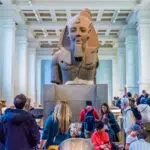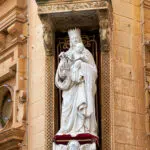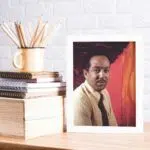The British Festival of Archaeology takes place from July 16 to 31. “All about Journeys” is the topic of this year’s Festival of Archaeology. The Festival includes hundreds of in-person and virtual events around the U.K., delivered by community groups, heritage organizations, institutions, and others. The scientific study of human activity via the recovery and examination of material culture from the earth is known as archaeology. Artifacts, architecture, biofacts, archeological sites, and cultural landscapes make up the majority of the archaeological record.
History of Festival of British Archaeology
The Festival of British Archaeology is an annual fortnight-long festival organized by the Council for British Archaeology (C.B.A.). Its events take place across the United Kingdom, in England, Wales, Scotland, and Northern Ireland. The festival began in 1990 with National Archaeology Day, which featured ten distinct events. It was first held in September, in conjunction with European Heritage Days. The C.B.A., on the other hand, decided to withdraw from European Heritage Days and relocate the event to July to take advantage of the summer fieldwork opportunities. In 2003, the festival expanded to a week-long event with 195 events, and in 2005, it was renamed the National Archaeology Week and became a nine-day festival.
National Archaeology Week was renamed the Festival of Archaeology by the C.B.A. The festival will take place annually in July. It has been tied to the European Archaeology Days since 2020, which are organized by the French National Institute for Preventive Archaeological Research, governed by the French Ministry of Culture. The British Archaeological Association was established in 1843 to encourage, support, and disseminate high-quality research on the subjects of Western archaeology and the Middle Ages.
The association’s goal was to create communication between self-identified professionals and local archaeologists, similar to the French Congres Archaeologique or the British Association for the Advancement of Science’s yearly gatherings.
Festival of British Archaeology timeline
The British Archaeological Association is established.
The Festival of British Archeology began in 1990 as National Archaeology Day.
The festival is expanded to a week-long event with 195 events.
In 2005, the festival is renamed National Archaeology Week and becomes a nine-day festival.
Festival of British Archaeology FAQs
What happens to archaeological discoveries?
It’s taken to a museum archive, usually a municipal or provincial one.
Are archaeologists allowed to keep uncovered artifacts?
No, they are not allowed to retain what they uncover because it is not theirs.
In archaeology, what is a symbol?
Many archaeologists believe that symbols are primarily used as communication tools.
Festival of British Archaeology Activities
Attend a function
Hundreds of archaeology-related events are held every year across the United Kingdom. As the day approaches, visit the C.B.A. website to see the scheduled events.
Promote the festival
Share posts building up to the festival's week. To publicize the event, start a countdown on your Instagram story. Make sure to use relevant hashtags.
Partake in online activities
If you can't make it to any of the in-person activities taking place during the week, don't worry. Just watch them live online. For further information, go to the C.B.A. website.
5 Interesting Facts About Archaeology
Mummy discovery
Gaston Maspero discovered an unwrapped mummy in 1886.
Technology is used to detect underground material
Instead of excavating, archaeologists can utilize technology to learn what lies underground.
The first female president
Rose Graham was the first female President of the British Archaeology Association from 1945 to 1951.
It's a protected activity
In the United Kingdom, archaeology is protected.
Archaeology isn't limited to underground
In fact, it usually isn't done beneath the ground.
Why We Love Festival of British Archaeology
It teaches us about the past
It provides information about the past. Many cultures have a history and legacy thanks to archaeology. Without archaeology, we would know little about prehistoric peoples' cultural evolution.
Helps us appreciate the present
Learning about archaeology can help us have a better understanding of how life used to be compared to how it is now. This will force us to acknowledge and respect the sufferings of the past, as well as appreciate the technologies we take for granted today.
Helps us understand human behavior
Archaeology helps us figure out how and why human behavior has evolved. Archaeologists are working to better forecast how societies, including our own, will evolve in the future so that we can better plan for it.
Festival of British Archaeology dates
| Year | Date | Day |
|---|---|---|
| 2024 | July 13 | Saturday |
| 2025 | July 19 | Saturday |
| 2026 | July 16 | Thursday |




















